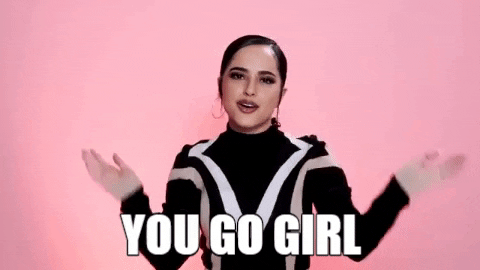How to Use Storytelling to Nail Your Next Interview: A Step-by-Step Guide
Introduction: The Tale of Two Candidates
Imagine two people, Alex and Jamie, interviewing for the same job at a tech company.

Alex answers questions by listing tasks completed and results achieved. Jamie, however, shares a story about a time they unexpectedly had to lead their team, highlighting how they helped everyone succeed during a tough situation.
Alex’s answers aren’t wrong but they also don’t really stick in your mind. Jamie's storytelling does more than just share facts; it makes the interviewers visualize the situation and feel impressed by how Jamie handled it.
This way of using stories isn’t just about sharing what happened, but about making it interesting and memorable. Jamie turns the interview into something special, and that helps them stand out.
Step 1: Understand the Power of Storytelling
Storytelling isn't just for bedtime; it's a potent communication tool that resonates on a deeper level.
When you tell a story, you engage the listener's emotions, making your message stick. In an interview, stories showcase your personality, skills, and experiences in a way that's both authentic and compelling.
- Stories build connection: They create a personal bond with the interviewer, making you more memorable than a list of bullet points on a resume.
- Stories demonstrate skills: Instead of just saying you're a problem-solver, tell a story about a time you tackled a complex challenge.
- Stories reveal your values: The stories you choose reveal what you prioritize and how you approach your work.
Step 2: Identify Your Key Stories
Think back on your career and personal life. What experiences stand out? What challenges did you overcome? What successes did you achieve? Look for stories that demonstrate:
- Skills and strengths: Leadership, problem-solving, teamwork, adaptability, etc.
- Values and personality: Integrity, work ethic, passion, creativity.
- Growth and learning: How you've developed and evolved over time.
Use the STAR method (Situation, Task, Action, Result) to structure your stories:
- Situation: Set the scene and provide context.
Example: "During my internship at XYZ Company, we were tasked with launching a new product within a tight deadline."
- Task: Describe the challenge or problem you faced.
Example: "The project hit a major roadblock when our main supplier unexpectedly backed out."
- Action: Explain the specific steps you took to address the situation.
Example: "I took the initiative to research alternative suppliers, negotiate new contracts, and coordinate with the team to adjust the project timeline."
- Result: Highlight the positive outcome and what you learned.
Example: "We successfully launched the product on time and even exceeded our sales targets. This experience taught me the importance of resourcefulness and adaptability in a fast-paced environment."
Step 3: Craft Compelling Narratives
Your stories should have a clear beginning, middle, and end.
- Beginning: Hook the listener with a vivid opening that sets the scene.
Example: "I'll never forget the day our server crashed during peak season..."
- Middle: Build tension and engage the listener with details and emotions.
Example: "The pressure was intense. Customers were frustrated, and our team was scrambling..."
- End: Provide a satisfying resolution and emphasize the takeaway or lesson learned.
Example: "By staying calm and focused, we were able to resolve the issue and even implement new procedures to prevent future outages. I learned that even in a crisis, clear communication and teamwork are key."
Use descriptive language, active verbs, and sensory details to bring your stories to life.

Step 4: Practice, Practice, Practice
The key to delivering a compelling story is confidence and authenticity. Practice your stories out loud until you can tell them smoothly and naturally.
- Rehearse with friends, family, or a career coach (ahem. Like me!). Ask for feedback on your clarity, pacing, and body language. And don’t forget to ask them if the stories are interesting and related to the question asked.
- Record yourself and listen for areas of improvement. Do you sound enthusiastic? Are there any filler words or awkward pauses?
- Pay attention to your body language and tone of voice. Project confidence and maintain eye contact.
Step 5: Tailor Your Stories to the Interview
Research the company and the specific role you're applying for.
- Select stories that align with the company culture and the position's requirements. If the company values innovation, highlight a story about a time you developed a creative solution.
- Adapt your stories to highlight the skills and experiences that are most relevant. If the job description emphasizes teamwork, focus on stories that showcase your collaborative abilities.
- Show how your stories demonstrate your fit for the role and the company. Explain how your past experiences have prepared you to contribute to their team and achieve their goals.
Step 6: Go Beyond the Interview
Storytelling is a valuable skill beyond the interview room. It can help you:
- Network and build relationships: Share stories that highlight your interests and passions to connect with people on a personal level.
- Negotiate salary and benefits: Use stories to illustrate your value and achievements, justifying your desired compensation.
- Onboard smoothly into a new role: Share stories about your past experiences and learn to quickly build rapport with new colleagues.
- Make a positive impact in your career: Use storytelling to present ideas, inspire others, and lead with influence.
Remember, interviews are not just about your qualifications; they're about connecting with the interviewer and leaving a lasting impression. By mastering the art of storytelling, you can transform your interviews from ordinary to extraordinary.
Now, go out there and tell your story!

P.S. Need more help in preparing for an interview and building your confidence? Let’s chat!
I offer a free 20-minute consultation to answer your questions and discuss how my services can help you achieve your objectives. To get a better idea of the topics we might cover, you can check out common questions, view my career packages, and book a session through this link.


